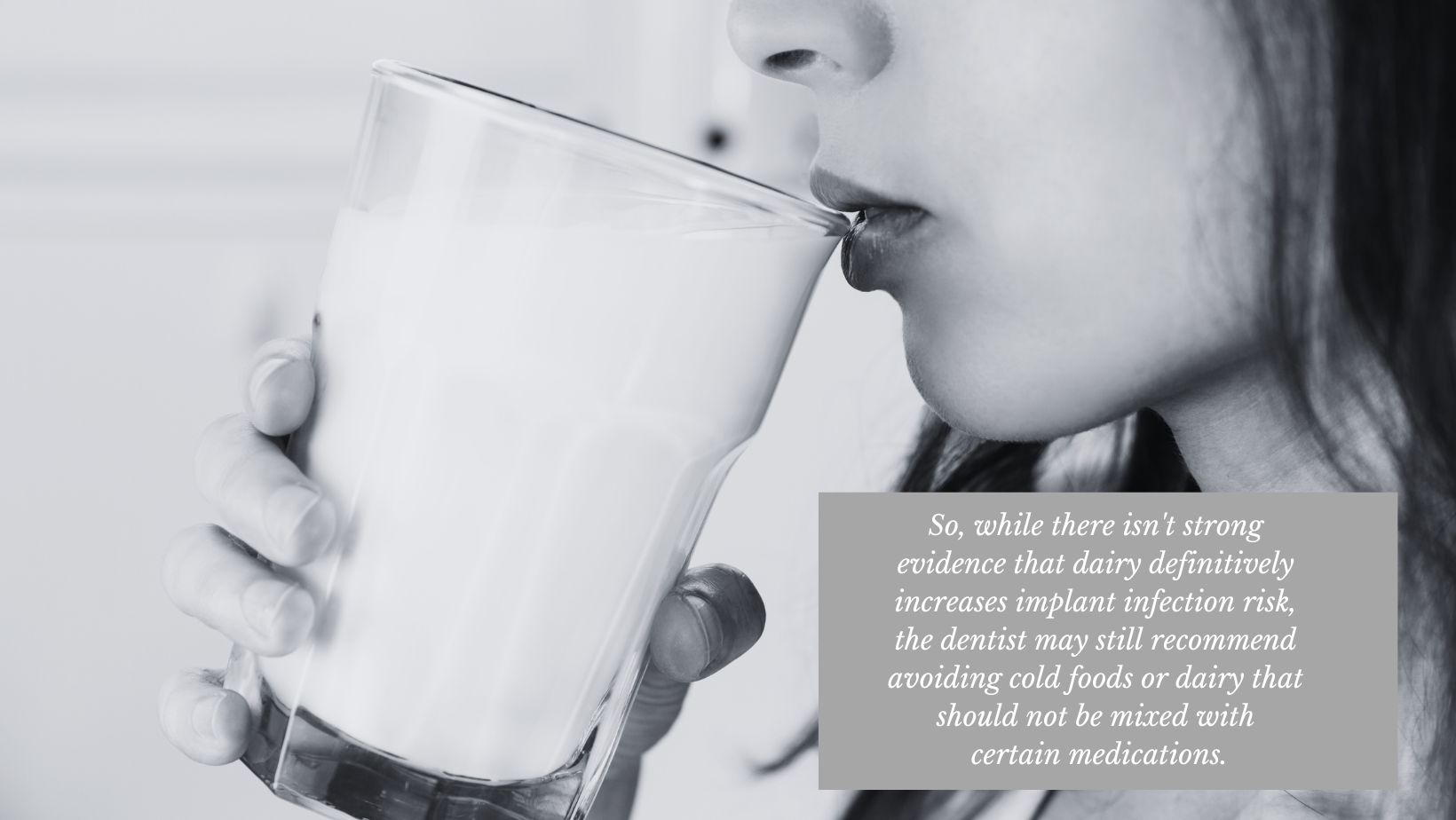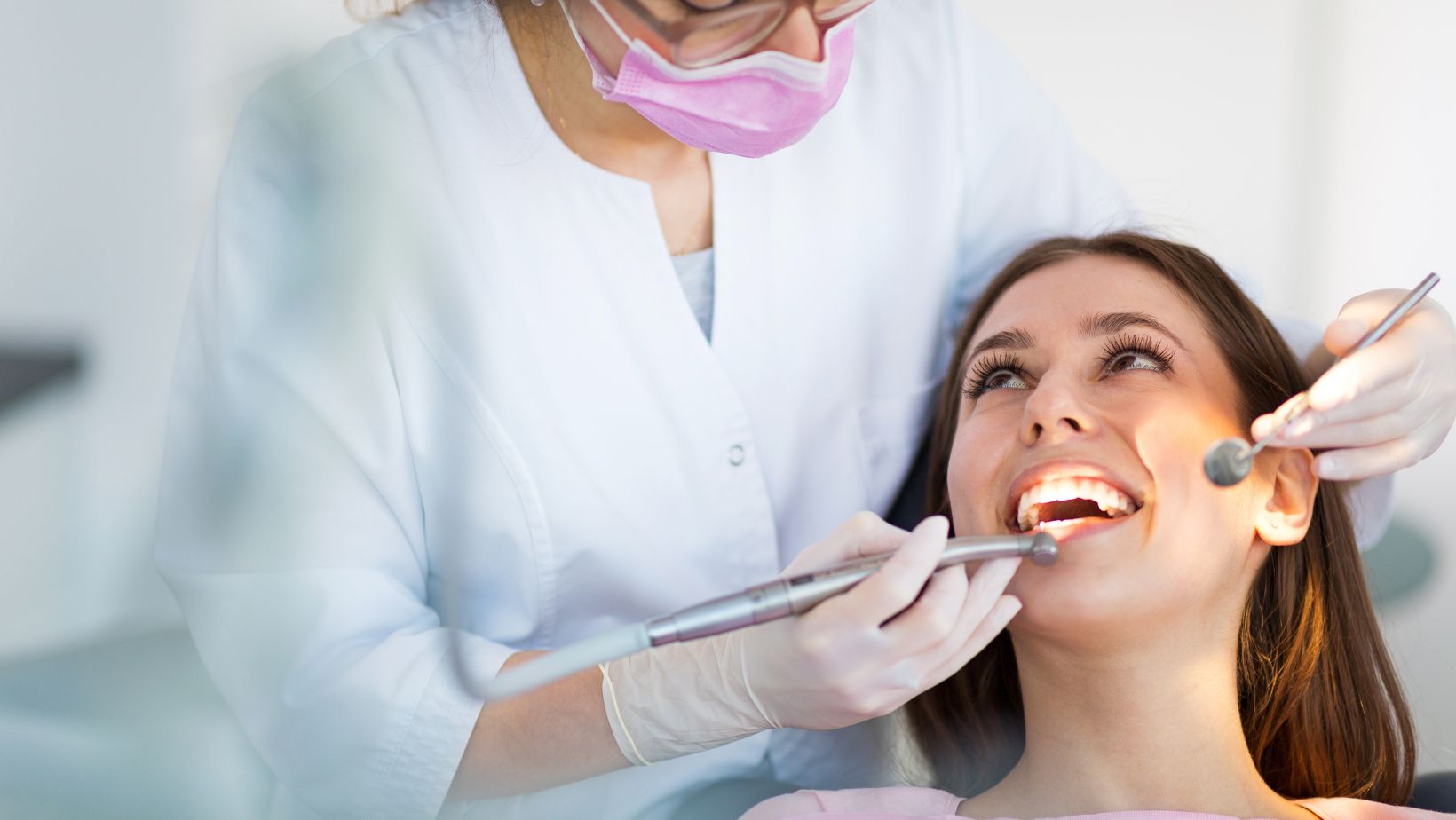If you are scheduled for a dental implant, chances are you have researched the procedure online. You may have stumbled upon the advice to avoid dairy products after a dental implant. But is this actually true?
Some sources online report that dairy products like milk, yogurt, and cheese may contain bacteria that can cause infections around dental implants. However, the scientific evidence around this guidance is quite limited and inconclusive.
What is likely the case is that some dentists say “no dairy after an implant” to help patients avoid sensitivity or interactions with their medications during recovery. The bottom line is: Unless your dentist specifically instructs otherwise for your particular case, having some dairy products after your implant surgery is most likely fine. Just avoid really cold, hard, or crunchy items until the area feels more comfortable.
Why the ‘No Dairy After a Dental Implant’ Rule May Not Have Teeth
One reason often given for avoiding milk and other dairy products after a dental implant is risk of infection. Dairy foods contain bacteria, and having bacteria near the implant site could hypothetically lead to an infection.
While this sounds logical, the scientific evidence behind this recommendation isn’t very strong. Sure, dairy does have some bacteria in it. But so do lots of other common foods people eat every day without issue, like vegetables, fruits, and even tap water. Everyone’s mouth already has plenty of bacteria present naturally.
The Limited Evidence
There have been a few small studies looking at whether consuming dairy shortly after implant surgery increases infection risk. Some of these studies found a slightly higher rate of infection among patients who had dairy versus those who didn’t. However, the differences were quite small.
At the same time, other studies found no link between dairy consumption and implant infections at all. The evidence overall is conflicting and far from conclusive. An infection after an implant is more likely to happen due to improper oral hygiene, smoking, or other tobacco use than from eating dairy.
Finally, discouraging patients from eating dairy may deprive them of the benefits of this food group.
The Potential Upsides of Dairy
While there are hypothetical downsides of having dairy near a fresh implant site, there are also some good reasons patients may want to include dairy in their diet during recovery:
- Dairy products are rich in protein, calcium, and other nutrients that can promote healing after a surgical procedure.
- Yogurt and kefir contain probiotics that can be beneficial for gut and oral health.
- Soft dairy items like yogurt, puddings, smoothies, and milkshakes are nutrient-dense but don’t require much chewing. This can make eating easier if chewing is uncomfortable after the implant is first placed.
The Real Answer Behind the No Dairy Recommendation: It Depends on the Patient
So if the science around infections is not super clear, and dairy offers dietary benefits, why do some dentists that specialize in implants recommend avoiding dairy after the procedure? There are a couple potential explanations:
Avoiding Sensitivity and Discomfort
Immediately after the implant, some patients experience mild pain, swelling, and sensitivity in the area. Cold, sugary dairy products such as yogurt and ice cream could potentially aggravate this. Patients experiencing sensitivity should avoid very cold (or very hot) foods until the area heals.
Limiting Medication Interactions
The provider who performs the implant surgery will likely prescribe antibiotics and/or other medications after the procedure. Some medications can interact badly with the calcium in dairy.
So, while there isn’t strong evidence that dairy definitively increases implant infection risk, the dentist may still recommend avoiding cold foods or dairy that should not be mixed with certain medications.

The Best Diet after a Dental Implant
After getting a dental implant, what a patient eats can affect the healing process. The dentist may give special instructions on a case-by-case basis, but here are some basic dietary tips to follow during healing after implant surgery:
- Eat soft foods. Avoiding hard, crunchy, and sticky foods can help protect the surgical site and prevent irritation.
- Drink plenty of water. Staying well hydrated can help the healing process.
- Avoid hot/cold foods. Very hot or very cold items may cause discomfort if the surgical area is sensitive.
- Focus on nutrient-dense foods. Opt for plenty of protein (lean meats, fish, tofu, and beans) and vitamin-rich foods (fruits, vegetables, whole grains). Include dairy if your dentist has not ruled it out.
- Avoid smoking and alcohol. These substances can make it harder to heal and should be avoided until cleared by the dentist.
After an implant, it is important to follow all the instructions from your dental dental team regarding medications, keeping the implant site clean, and foods to avoid. And of course, contact them right away if you notice any signs of problems like increasing pain or swelling. With proper precautions and care, your implant recovery should go very smoothly!
To locate a dentist who specializes in implants, use our online directory.


